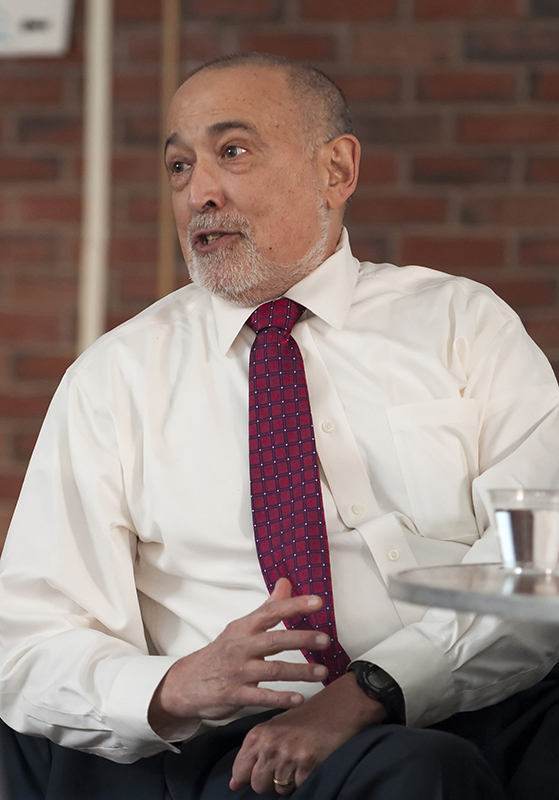Former U.S. Rep. Howard Wolpe talks peace-building
Wolpe urges 'to put yourself in the shoes of the other'

Many conventional practices of Western peace-builders are deeply flawed and ineffective, former U.S. Rep. Howard Wolpe said in a talk earlier this month called “Democracy and Peace-Building: Rethinking the Conventional Wisdom.”
Wolpe, who served as President Clinton’s special envoy to the Great Lakes region of Africa, is currently director of the Africa Program at the Woodrow Wilson International Center for Scholars and a board member of Coexistence International, which sponsored his Brandeis talk along with Gen Ed Now, the Global Affairs Table, and the Slifka Program in Intercommunal Coexistence.
He described his work directing post-conflict leadership training programs in Burundi, the Democratic Republic of Congo, and Liberia. He stressed that these programs, bringing together leaders from the government, military, and civil society in post-conflict countries, focus on building trust and relationships by helping participants understand the perspective of the other side.
Wolpe said that at every stage of training programs the trainers strongly urge participants "to put yourself in the shoes of the other."
Many who seek to promote democracy operate under false assumptions, such as the belief that getting leaders to forge agreements will in itself solve the underlying problem, when “you haven’t fundamentally altered the mindsets of the leaders who started the conflicts in the first place.”
Wolpe said Westerners often bring to peace-building efforts an “absolute fixation on elections’’ that can further divide conflict-riven societies rather than unify them. Democracy, he said, depends on not only competition but on cooperation and on recognition of common ground among the national community.
In Kenya, for example, people were surprised when violence broke out during elections. Yet people who knew the country understood that it lacks trust and interdependence among its ethnic groups, he said.
Wolpe illustrated his approach to helping divided societies move toward sustainable peace by describing his work in Burundi, where he has worked for more than five years. The country was suffering from what had been a protracted civil war and had a polarized leadership and unequal distribution of limited resources, he said. To address these problems, Wolpe and his associates spent several months identifying key leaders from a variety of organization and various sectors of society. Getting the right people involved contributes to a “national ownership” of the process, he said.
Wolpe advocates a strong focus on simulations and interactive exercises before specific, substantive matters are addressed, helping participants see one another as individuals and not just members of “other” ethnic groups. Trainers then act as facilitators when participants confront the tensions behind their specific conflicts. He described an exercise in which participants were asked to describe the concerns of competing parties in order to understand each other’s interests. “That was the psychological turning point of the whole process,” he said.





